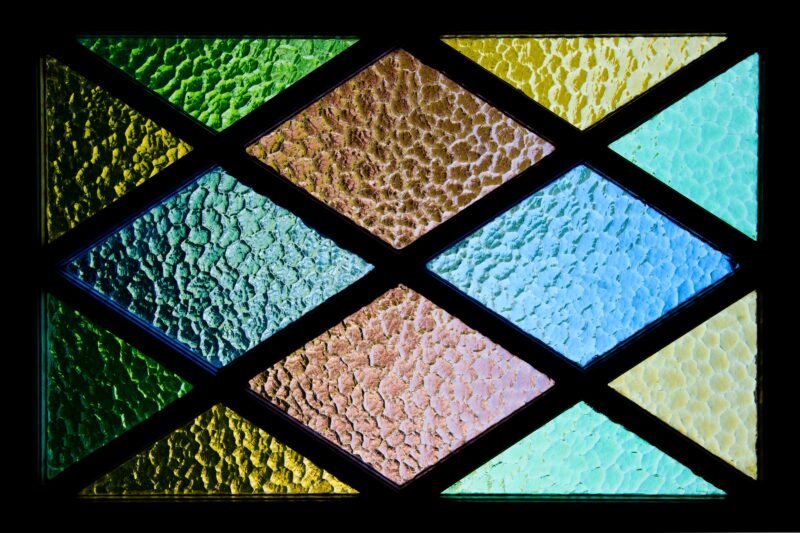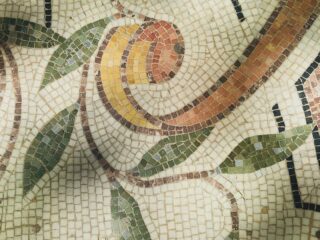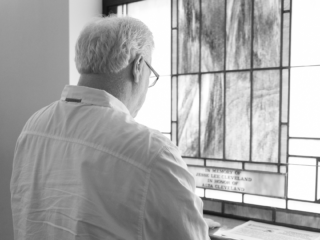We used to think our memories worked like computers. Information would come to us through our reading or from someone telling a story and we would condense those facts into our own private code and store this data in our mental filing cabinet. When we needed those facts, we’d go to that file and pull out the facts we needed.
What we’ve found out is that the brain doesn’t work like that. The brain uses images a lot more than raw data. We remember things because we remember the way they looked. Ask any guy about his wedding day. Ask him to tell you what he most remembers and almost universally, he will remember the moment when he saw his new bride, framed by the sanctuary doors, holding her father’s arm as she prepared to walk down the aisle to join him.
Now, here’s where it gets interesting. It seems we take several of these pictures – pictures of family, of ourselves, our friends, and the world as a whole – and we hang them along the hallways of our minds. These pictures work like stained-glass windows; we look through them to view the world. For instance, we all have a picture of “father,” whether good or bad, and anytime we’re thinking about “father” or trying to be a father, we look through this window into the world around us.
It’s not just rose-colored glasses that tint our vision. Our impressions, knowledge, and understandings of ourselves and the world we live in that are tinted by the stained-glass windows we’ve hung in our minds.
As most of us know, if we’re to accomplish any real change in our lives or communities, we have to find a way to change the windows through which we’re looking. Want to change yourself? You have to change your self-image. Want to change racism? You have to change the window through which you see others.
Have you ever noticed how many times Jesus told stories that, in effect, changed the windows of his hearers?
“Who is my neighbor?”
“A man was going from Jerusalem to Jericho…” and Jesus changes the window. We can never again think about our neighbors without seeing them through the story of the Good Samaritan.
“A father had two sons…” and Jesus forever changes the way we think about the love of the Father and what forgiveness looks like. From now on, we’ll only see it through the window of the story of the prodigal son.
The gospel changes the way we see everyone and everything. As we follow closer and closer to Christ, our “vision” is healed. Like the blind man whose eyes were healed by Jesus, our sight starts out blurry, but it gradually gets clearer. That’s because windows are a lot of work. They get dirty and need to be cleaned. They crack and need to be repaired.
In all of my years of ministry, I’ve discovered more times than not, a person’s life isn’t changed when they hear new information, but when they can see new ways through new windows. The best preachers change the windows their people see through. Good counselors help people change the windows in their minds and souls so they see themselves and their worlds in different ways. A good friend is always helping you, if not making you, change your mind by changing windows.
I love apologetics and I’m grateful for the men and women who dedicate their lives to the discipline of being able to defend the faith against the challenges of our culture. I just haven’t found it that effective in everyday conversations with those who are seeking to believe. Whenever you solve one dilemma, you seem to open three more.
It’s not that way with stories. Stories don’t bring you answers as much as they invite you to ponder the possibilities. What if the older brother had been more forgiving of his prodigal younger brother? What if the younger brother had never left home? What if the shepherd said that 99 sheep were plenty and never went to look for the lost one?
You can spend your entire life wondering about the subtle shifts that might have happened by asking another “what if” question. With each question, you see the world in a little different way.
So, for your next conversation with a troubled friend, bring a new window. In your next sermon, share plenty of new ways to view the passage. Changing windows changes minds, and changed minds change our souls.









